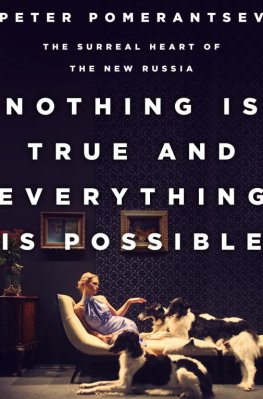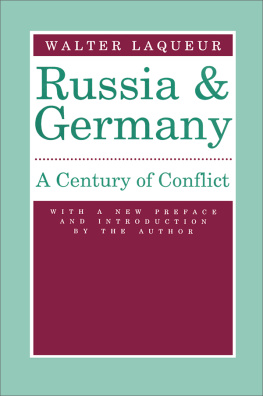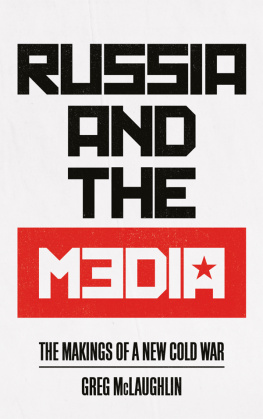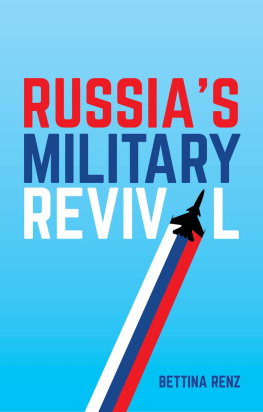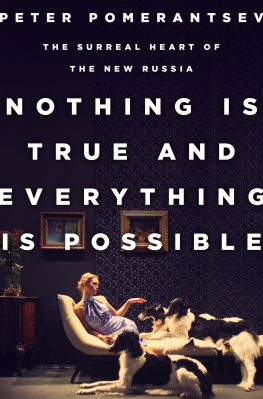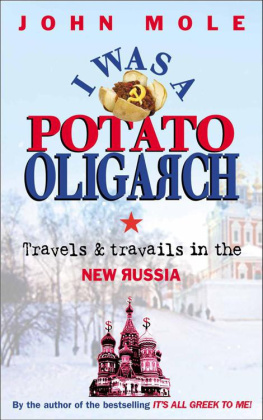Peter Pomerantsev
NOTHING IS TRUE AND EVERYTHING IS POSSIBLE
THE SURREAL HEART OF THE NEW RUSSIA
For my wife, parents, children, Aunt Sasha, and Paul
Flying in at night over Moscow you can see how the shape of the city is a series of concentric ring-roads with the small ring of the Kremlin at the center. At the end of the twentieth century the light from the rings glowed a dim, dirty yellow. Moscow was a sad satellite at the edge of Europe, emitting the dying embers of the Soviet Empire. Then, in the twenty-first century, something happened: money. Never had so much money flowed into so small a place in so short a time. The orbital system shifted. Up above the city the concentric rings began to shine with the lights of new skyscrapers, neon, and speeding Maybachs on the roads, swirling faster and faster in high-pitched, hypnotic fairground brilliance. The Russians were the new jet set: the richest, the most energetic, the most dangerous. They had the most oil, the most beautiful women, the best parties. From being ready to sell anything, they became ready to buy anything: football clubs in London and basketball clubs in New York; art collections, English newspapers, and European energy companies. No one could understand them. They were both lewd and refined, cunning and naive. Only in Moscow did they make sense, a city living in fast-forward, changing so fast it breaks all sense of reality, where boys become billionaires in the blink of an eye.
Performance was the citys buzzword, a world where gangsters become artists, gold diggers quote Pushkin, Hells Angels hallucinate themselves as saints. Russia had seen so many worlds flick through in such blistering progressionfrom communism to perestroika to shock therapy to penury to oligarchy to mafia state to mega-richthat its new heroes were left with the sense that life is just one glittering masquerade, where every role and any position or belief is mutable. I want to try on every persona the world has ever known, Vladik Mamyshev-Monroe would tell me. He was a performance artist and the citys mascot, the inevitable guest at parties attended by the inevitable tycoons and supermodels, arriving dressed as Gorbachev, a fakir, Tutankhamen, the Russian President. When I first landed in Moscow I thought these infinite transformations the expression of a country liberated, pulling on different costumes in a frenzy of freedom, pushing the limits of personality as far as it could possibly go to what the Presidents vizier would call the heights of creation. It was only years later that I came to see these endless mutations not as freedom but as forms of delirium, in which scare-puppets and nightmare mystics become convinced theyre almost real and march toward what the Presidents vizier would go on to call the the fifth world war, the first non-linear war of all against all.
But I am getting ahead of myself.
I work in television. Factual television. Factual entertainment, to be exact. I was flying into Moscow in 2006 because the television industry, like everything else, was booming. I knew the country already: since 2001, the year after I graduated from university, I had been living there most of my time, jumping jobs between think tanks and as a very minor consultant on European Union projects meant to be aiding Russian development, then at film school, and lately as an assistant on documentaries for Western networks. My parents had emigrated from the Soviet Union to England in the 1970s as political exiles, and I grew up speaking some sort of demotic migr Russian. But I had always been an observer looking in at Russia. I wanted to get closer: London seemed so measured, so predictable; the America the rest of my migr family lived in seemed so content; while the real Russians seemed truly alive, had the sense that anything was possible. What I really wanted to do was film. To press record and just point and shoot. I took my camera, the battered metal Sony Z1 small enough to always drop in my bag, everywhere. A lot of the time I just filmed so as not to let this world escape; I shot blindly, knowing I would never have a cast like this again. And I was in demand in the new Moscow for the simple reason that I could say the magic words I am from London. They worked like open sesame. Russians are convinced Londoners know the alchemical secret of successful television, can distill the next hit reality or talent show. No matter that I had never been more than a third-rate assistant on other peoples projects; just by whispering I come from London could get me any meeting I wanted. I was a stowaway on the great armada of Western civilization, the bankers, lawyers, international development consultants, accountants, and architects who have sailed out to seek their fortune in the adventures of globalization.
But in Russia, working in television is about more than being a camera, an observer. In a country covering nine time zones, one-sixth of the worlds land mass, stretching from the Pacific to the Baltic, from the Arctic to the Central Asian deserts, from near-medieval villages where people still draw water from wooden wells by hand, through single-factory towns and back to the blue glass and steel skyscrapers of the new MoscowTV is the only force that can unify and rule and bind this country. Its the central mechanism of a new type of authoritarianism, one far subtler than twentieth-century strains. And as a TV producer I would be directed right into the center of its workings.
My first meeting took me to the top floor of Ostankino, the television center the size of five football fields that is the battering ram of Kremlin propaganda. On the top floor, down a series of matt-black corridors, is a long conference room. Here Moscows flashiest minds met for the weekly brainstorming session to decide what Ostankino would broadcast. I was taken along by a friendly Russian publisher. Due to my Russian surname no one had yet noticed I was British; I kept my mouth shut. There were more than twenty of us in the room: tanned broadcasters in white silk shirts and politics professors with sweaty beards and heavy breath and ad execs in trainers. There were no women. Everyone was smoking. There was so much smoke it made my skin itch.
At the end of the table sat one of the countrys most famous political TV presenters. He is small and speaks fast, with a smoky voice:
We all know there will be no real politics. But we still have to give our viewers the sense something is happening. They need to be kept entertained. So what should we play with? Shall we attack oligarchs? [He continued,] Whos the enemy this week? Politics has got to feel like like a movie!
The first thing the President had done when he came to power in 2000 was to seize control of television. It was television through which the Kremlin decided which politicians it would allow as its puppet-opposition, what the countrys history and fears and consciousness should be. And the new Kremlin wont make the same mistake the old Soviet Union did: it will never let TV become dull. The task is to synthesize Soviet control with Western entertainment. Twenty-first-century Ostankino mixes show business and propaganda, ratings with authoritarianism. And at the center of the great show is the President himself, created from a no one, a gray fuzz via the power of television, so that he morphs as rapidly as a performance artist among his roles of soldier, lover, bare-chested hunter, businessman, spy, tsar, superman. The news is the incense by which we bless Putins actions, make him the President, TV producers and political technologists liked to say. Sitting in that smoky room, I had the sense that reality was somehow malleable, that I was with Prosperos who could project any existence they wanted onto post-Soviet Russia. But with every year I worked in Russia, and as the Kremlin became ever more paranoid, Ostankinos strategies became ever more twisted, the need to incite panic and fear ever more urgent; rationality was tuned out, and Kremlin-friendly cults and hate-mongers were put on prime time to keep the nation entranced, distracted, as ever more foreign hirelings would arrive to help the Kremlin and spread its vision to the world.

